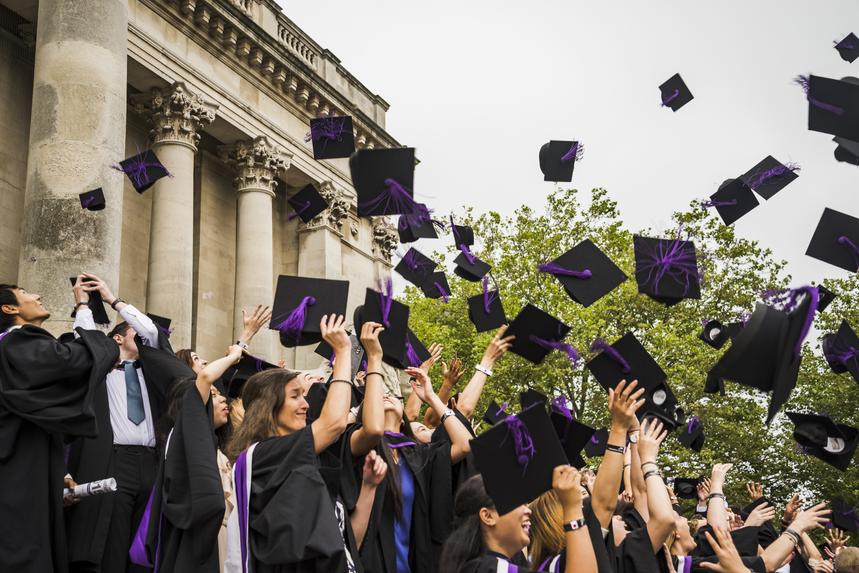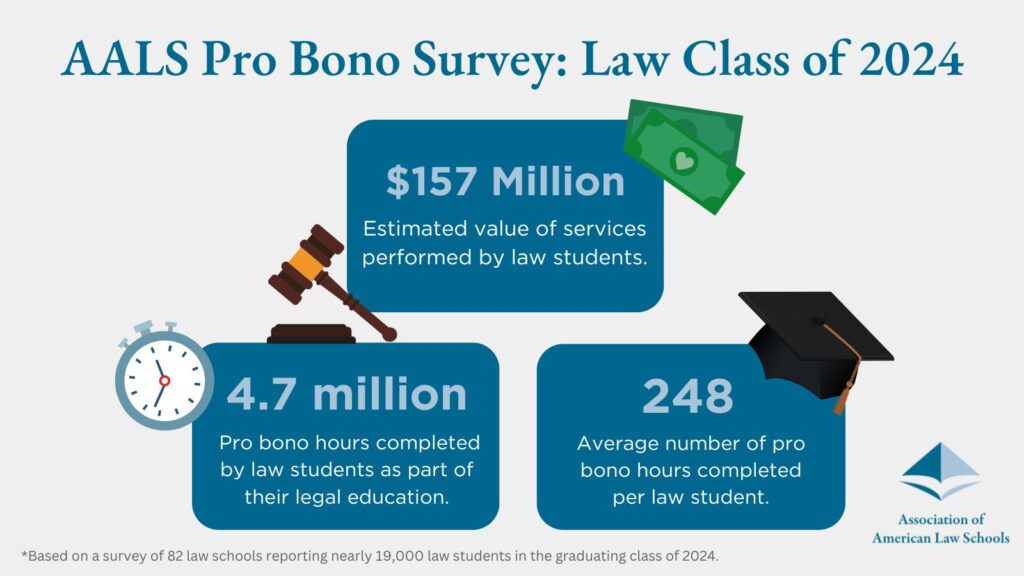Through an annual nationwide survey, the Association of American Law Schools (AALS) measured law school contributions to the delivery of much-needed legal services through clinics, other experiential courses, and the pro bono activities of law students.

In the fall of 2024, 82 law schools reported that 18,929 law students in the graduating class of 2024* contributed 4,704,109 hours in legal services as part of their legal education, an average of 248 hours per student. Independent Sector, a nonprofit organization coalition, estimates the value of volunteer time as $33.49 an hour. Using this number, the total value of the students’ time at these schools is estimated to be in excess of $157.5 million.
In the same survey, 85 schools reported that 50,493 law students in all class years (1L-3L) during the academic year 2023-24 contributed 4,415,617.5 hours in legal services, an average of approximately 87.5 hours per student. Using the Independent Sector Value of Volunteer Time, these services are estimated to be worth over $129.3 million.
Schools represented in the survey account approximately half of the JD students in American Bar Association accredited law schools in 2023-24, therefore contributions from all law schools could be nearly double the reported amount. In addition, several schools reported that some hours go uncounted or are difficult to track, so reported contributions were also likely higher. The project also did not include hours contributed by students in law school master’s degree programs such as an LLM program.
Law students contributed hours through a variety of efforts that span most every legal subject area. The clinics, externships, and projects serve veterans, individuals and families in rural areas, small business owners, children and parents, victims of violence, and others who would likely otherwise go unrepresented in important legal matters all while enabling students to apply classroom concepts to legal problems under the supervision of lawyers and professors.
“AALS is proud of the contributions our nation’s law students make though clinical courses and pro bono efforts,” said AALS President Austen Parrish, Dean and Chancellor’s Professor of Law at University of California Irvine School of Law. “Through these efforts, students gain practice and professional skills while making a positive impact on individuals and communities in need.”
“Experiential education is growing as law schools work hard to bridge gaps in the availability of legal services for those of limited means while simultaneously doing even more to prepare graduates to hit the ground running in their careers,” said Kellye Y. Testy, AALS Executive Director and CEO. “No matter students’ areas of focus, they have the opportunity for hands-on learning that enhances their practice-readiness as lawyers.”
A full report on the survey is available on the AALS website.


